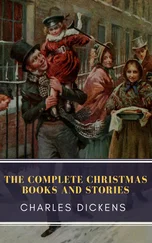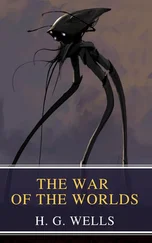D. Pedro. What? sigh for the toothache?
Leon. Where is but a humor or a worm.
Bene. Well, every one [can] master a grief but he that has it.
Claud. Yet say I, he is in love.
D. Pedro. There is no appearance of fancy in him, unless it be a fancy that he hath to strange disguises—as to be a Dutchman to-day, a Frenchman to- morrow, or in the shape of two countries at once, as a German from the waist downward, all slops, and a Spaniard from the hip upward, no doublet. Unless he have a fancy to this foolery, as it appears he hath, he is no fool for fancy, as you would have it appear he is.
Claud. If he be not in love with some woman, there is no believing old signs. ’A brushes his hat a’ mornings; what should that bode?
D. Pedro. Hath any man seen him at the barber’s?
Claud. No, but the barber’s man hath been seen with him, and the old ornament of his cheek hath already stuff’d tennis-balls.
Leon. Indeed he looks younger than he did, by the loss of a beard.
D. Pedro. Nay, ’a rubs himself with civet. Can you smell him out by that?
Claud. That’s as much as to say, the sweet youth’s in love.
[D. Pedro]. The greatest note of it is his melancholy.
Claud. And when was he wont to wash his face?
D. Pedro. Yea, or to paint himself? for the which I hear what they say of him.
Claud. Nay, but his jesting spirit, which is now crept into a lute-string, and now govern’d by stops.
D. Pedro. Indeed that tells a heavy tale for him. Conclude, conclude, he is in love.
Claud. Nay, but I know who loves him.
D. Pedro. That would I know too. I warrant one that knows him not.
Claud. Yes, and his ill conditions, and in despite of all, dies for him.
D. Pedro. She shall be buried with her face upwards.
Bene. Yet is this no charm for the toothache. Old signior, walk aside with me, I have studied eight or nine wise words to speak to you, which these hobby-horses must not hear.
[Exeunt Benedick and Leonato.]
D. Pedro. For my life, to break with him about Beatrice.
Claud. ’Tis even so. Hero and Margaret have by this play’d their parts with Beatrice, and then the two bears will not bite one another when they meet.
Enter [Don] John the Bastard.
D. John. My lord and brother, God save you!
D. Pedro. Good den, brother.
D. John. If your leisure serv’d, I would speak with you.
D. Pedro. In private?
D. John. If it please you, yet Count Claudio may hear, for what I would speak of concerns him.
D. Pedro. What’s the matter?
D. John [To Claudio]. Means your lordship to be married to-morrow?
D. Pedro. You know he does.
D. John. I know not that, when he knows what I know.
Claud. If there be any impediment, I pray you discover it.
D. John. You may think I love you not; let that appear hereafter, and aim better at me by that I now will manifest. For my brother, I think he holds you well, and in dearness of heart hath holp to effect your ensuing marriage—surely suit ill spent and labor ill bestow’d.
D. Pedro. Why, what’s the matter?
D. John. I came hither to tell you, and circumstances short’ned (for she has been too long a-talking of), the lady is disloyal.
Claud. Who, Hero?
D. John. Even she—Leonato’s Hero, your Hero, every man’s Hero.
Claud. Disloyal?
D. John. The word is too good to paint out her wickedness. I could say she were worse; think you of a worse title, and I will fit her to it. Wonder not till further warrant. Go but with me to-night, you shall see her chamber-window ent’red, even the night before her wedding-day. If you love her then, to-morrow wed her; but it would better fit your honor to change your mind.
Claud. May this be so?
D. Pedro. I will not think it.
D. John. If you dare not trust that you see, confess not that you know. If you will follow me, I will show you enough, and when you have seen more, and heard more, proceed accordingly.
Claud. If I see any thing to-night why I should not marry her, to-morrow in the congregation, where I should wed, there will I shame her.
D. Pedro. And as I woo’d for thee to obtain her, I will join with thee to disgrace her.
D. John. I will disparage her no farther till you are my witnesses. Bear it coldly but till midnight, and let the issue show itself.
D. Pedro. O day untowardly turn’d!
Claud. O mischief strangely thwarting!
D. John. O plague right well prevented! So will you say when you have seen the sequel.
[Exeunt.]
¶
Enter Dogberry and his compartner [Verges] with the Watch.
Dog. Are you good men and true?
Verg. Yea, or else it were pity but they should suffer salvation, body and soul.
Dog. Nay, that were a punishment too good for them, if they should have any allegiance in them, being chosen for the Prince’s watch.
Verg. Well, give them their charge, neighbor Dogberry.
Dog. First, who think you the most desartless man to be constable?
1. Watch. Hugh Oatcake, sir, or George Seacole, for they can write and read.
Dog. Come hither, neighbor Seacole. God hath blest you with a good name. To be a well-favor’d man is the gift of fortune, but to write and read comes by nature.
2. Watch. Both which, Master Constable—
Dog. You have: I knew it would be your answer. Well, for your favor, sir, why, give God thanks, and make no boast of it, and for your writing and reading, let that appear when there is no need of such vanity. You are thought here to be the most senseless and fit man for the constable of the watch; therefore bear you the lanthorn. This is your charge: you shall comprehend all vagrom men; you are to bid any man stand, in the Prince’s name.
2. Watch. How if ’a will not stand?
Dog. Why then take no note of him, but let him go, and presently call the rest of the watch together, and thank God you are rid of a knave.
Verg. If he will not stand when he is bidden, he is none of the Prince’s subjects.
Dog. True, and they are to meddle with none but the Prince’s subjects. You shall also make no noise in the streets; for, for the watch to babble and to talk, is most tolerable, and not to be endur’d.
[2. Watch.] We will rather sleep than talk, we know what belongs to a watch.
Dog. Why, you speak like an ancient and most quiet watchman, for I cannot see how sleeping should offend; only have a care that your bills be not stol’n. Well, you are to call at all the alehouses, and bid those that are drunk get them to bed.
[2. Watch.] How if they will not?
Dog. Why then let them alone till they are sober. If they make you not then the better answer, you may say they are not the men you took them for.
[2. Watch.] Well, sir.
Dog. If you meet a thief, you may suspect him, by virtue of your office, to be no true man; and for such kind of men, the less you meddle or make with them, why, the more is for your honesty.
[2. Watch.] If we know him to be a thief, shall we not lay hands on him?
Dog. Truly by your office you may, but I think they that touch pitch will be defil’d. The most peaceable way for you, if you do take a thief, is to let him show himself what he is, and steal out of your company.
Читать дальше












![Уильям Шекспир - The Works of William Shakespeare [Cambridge Edition] [Vol. 1 of 9]](/books/746589/uilyam-shekspir-the-works-of-william-shakespeare-c-thumb.webp)